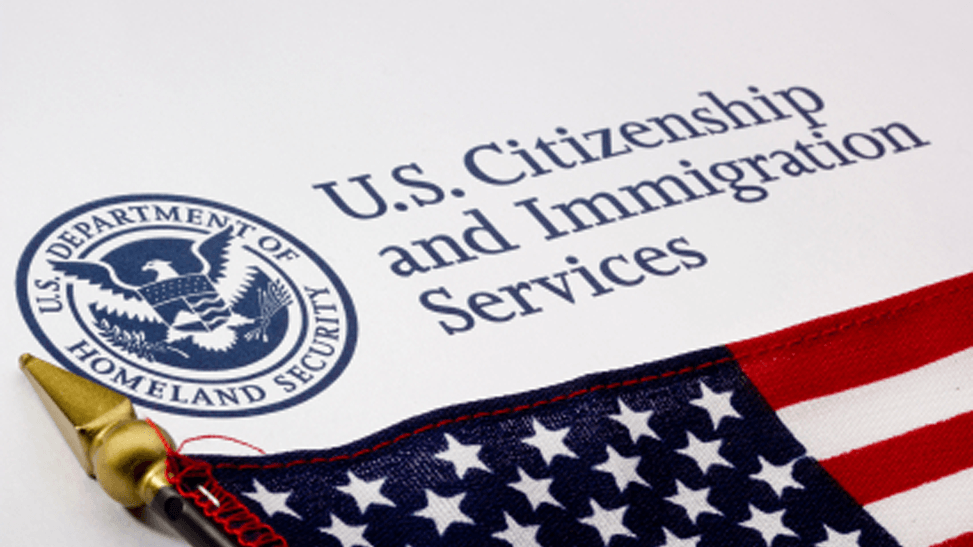Comprender el nuevo requisito de registro de extranjeros del USCIS: Lo que necesita saber
Click here to read this article in English
En enero de 2025, el gobierno de Estados Unidos introdujo un mandato que exige a todas las personas sin estatus legal en el país que se registren ante las autoridades federales. Esta iniciativa pretende mejorar la seguridad nacional y garantizar el cumplimiento de las leyes de inmigración vigentes. Si usted o alguien que conoce se ve afectado por este cambio, es esencial que entienda los detalles de este requisito y cómo cumplirlo.
¿Quién está ya registrado?
Muchas personas ya han cumplido sus obligaciones de registro mediante interacciones previas con las autoridades de inmigración estadounidenses. Se le considera registrado si se le ha expedido alguno de los siguientes documentos:
- Tarjeta de Residente Permanente Legal (Green Card)
- Formulario I-94 o I-94W (registro de llegada/salida), aunque haya expirado el período de admisión
- Visado de inmigrante o no inmigrante expedido antes de la llegada
- Documento de autorización de empleo (EAD)
- Tarjeta de paso de fronteras
Además, si ha solicitado la residencia permanente legal utilizando formularios como el I-485, I-687, I-691, I-698 o I-700, aunque le hayan denegado las solicitudes, o si ha obtenido el permiso temporal de viaje para entrar en Estados Unidos en virtud del artículo 212(d)(5) de la INA, ha cumplido el requisito de inscripción.
¿Quién debe inscribirse ahora?
Si no se ha registrado a través de ninguno de los medios mencionados anteriormente, está obligado a registrarse en virtud del nuevo mandato. Esto incluye:
- Personas de 14 años o más que no se registraron ni tomaron las huellas dactilares al solicitar el visado y han permanecido en Estados Unidos durante 30 días o más. Deben solicitarlo antes de que expiren esos 30 días.
- Padres o tutores legales de niños menores de 14 años que no hayan sido registrados y hayan permanecido en Estados Unidos durante 30 días o más. Deben inscribir a sus hijos antes de que finalice el periodo de 30 días.
- Toda persona que cumpla 14 años en Estados Unidos y haya estado empadronada anteriormente. Deben solicitar el reempadronamiento y la toma de huellas dactilares en los 30 días siguientes a su 14 cumpleaños.
En particular, los indios americanos nacidos en Canadá que entraron en Estados Unidos en virtud de la sección 289 de la INA y los miembros de la Banda de Indios Kickapoo de Texas que entraron en virtud de la Ley de la Banda de Indios Kickapoo de Texas están exentos de este requisito.
¿Cómo registrarse?
El Servicio de Ciudadanía e Inmigración de Estados Unidos (USCIS) está desarrollando un nuevo formulario y proceso de registro. A partir del 25 de febrero de 2025, las personas que deban registrarse deberán crear una cuenta en línea del USCIS para preparar el proceso de registro. Una vez implementado el proceso, las inscripciones se presentarán a través de esta cuenta en línea.
Consideraciones importantes
- El registro no es un estatus de inmigración: completar el registro no otorga ningún estatus migratorio, autorización de empleo u otros derechos o beneficios bajo la ley estadounidense.
- Consecuencias del incumplimiento: el incumplimiento del requisito de registro puede dar lugar a multas, penas de prisión o ambas.
En Santos Lloyd Law Firm, P.C., estamos comprometidos a guiarlo a través de este proceso con compasión y experiencia. Nuestros abogados de inmigración de confianza están aquí para proporcionar la información y la ayuda que usted necesita durante este tiempo. Para una guía personalizada y apoyo, por favor contacte a Santos Lloyd Law Firm, P.C., y hable con uno de nuestros abogados de inmigración con experiencia. Estamos dedicados a ayudarle a navegar estos cambios y asegurar un futuro esperanzador.
Este blog no pretende ser una asesoría legal y nada aquí debe interpretarse como el establecimiento de una relación abogado-cliente. Programe una consulta con un abogado de inmigración antes de actuar sobre cualquier información que aquí lea.





